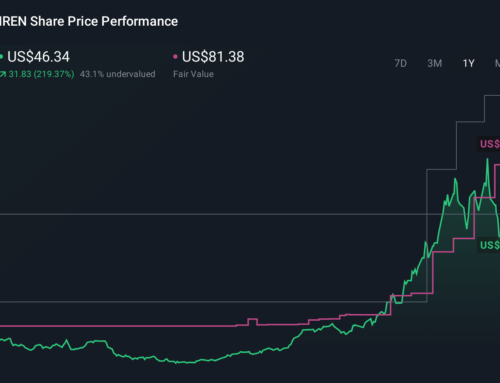Rhode Island finalizes long-awaited retail cannabis expansion
April 14, 2025
Rhode Island’s Cannabis Control Commission voted Friday to approve a comprehensive set of regulations that will govern the state’s recreational marijuana market, according to the Rhode Island Current. The new rules clear the way for the expansion of retail operations nearly two and a half years after legalization.
“These are truly homegrown, just like our cultivators,” Commission Chairperson Kimberly Ahern said following the panel’s vote. “This is an industry that is growing here thoughtfully, intentionally, deliberately – and it needs to reflect that.”
The three-member commission wrapped up its decision in just 18 minutes, the outlet reported, but the path to this moment has been anything but quick.
Since recreational sales began in December 2022, only seven previously authorized medical marijuana dispensaries have been permitted to sell cannabis to adult consumers, with two more in development stages. Meanwhile, 60 licensed cannabis growers have been waiting to supply a market that barely exists.
“Our industry has probably already lost 150 jobs in the first wave of layoffs,” Peter Kasabian of Loud LLC said at a state Senate hearing in June 2023, Green Market Report previously wrote. “That’s the first round of layoffs. Who knows when the next round is coming?”
Kasabian, who co-founded Sensible Cultivators for Intelligent Reform, expressed relief after Friday’s vote.
“It’s awesome that this finally happened – we’ve been waiting years for this,” he told the Rhode Island Current.
The regulations, which take effect May 1, establish a “hybrid” selection process where applicants for the 24 new retail licenses will first be screened for qualifications before entering a lottery. The system includes specific provisions for social equity applicants and worker-owned cooperatives.
Six licenses will be reserved for social equity applicants and another six for worker-owned cooperatives. Licenses must be distributed across six geographic zones with a maximum of four stores per zone.
All prospective retailers must pay a $7,500 application fee and a $30,000 annual licensing fee.
“Certainly this calendar year and perhaps even faster,” Ahern told reporters when asked when applications might open.
The commission received more than 380 public comments during a 30-day feedback period after draft rules were posted in January.
Two lawsuits challenging the legality of residency requirements and parameters of the social equity program that delayed the regulations were dismissed in February. Commission officials previously said those could’ve impacted the timeline for new store openings. Additionally, direct-to-consumer hemp products still pose a threat to traditional cannabis businesses in the state, officials have said.
A preliminary analysis presented to the commission last October found that only three municipalities met the criteria for social equity zones under the 2022 law: Central Falls, Providence and Woonsocket, with some census tracts in Pawtucket and Newport also qualifying.
The commission plans to continue refining social equity criteria in future meetings, according to Ahern.
Rhode Island’s approach differs from neighboring Massachusetts, which embraced recreational cannabis sales much more quickly after voter approval. However, Rhode Island’s deliberate approach aligns with concerns about oversaturation and market stability seen in other states.
The rules transfer regulatory authority from the Department of Business Regulation to the Cannabis Control Commission as originally envisioned in the 2022 legalization law, establishing the foundation for what will eventually be 33 operational adult-use cannabis shops statewide.
Search
RECENT PRESS RELEASES
Related Post




